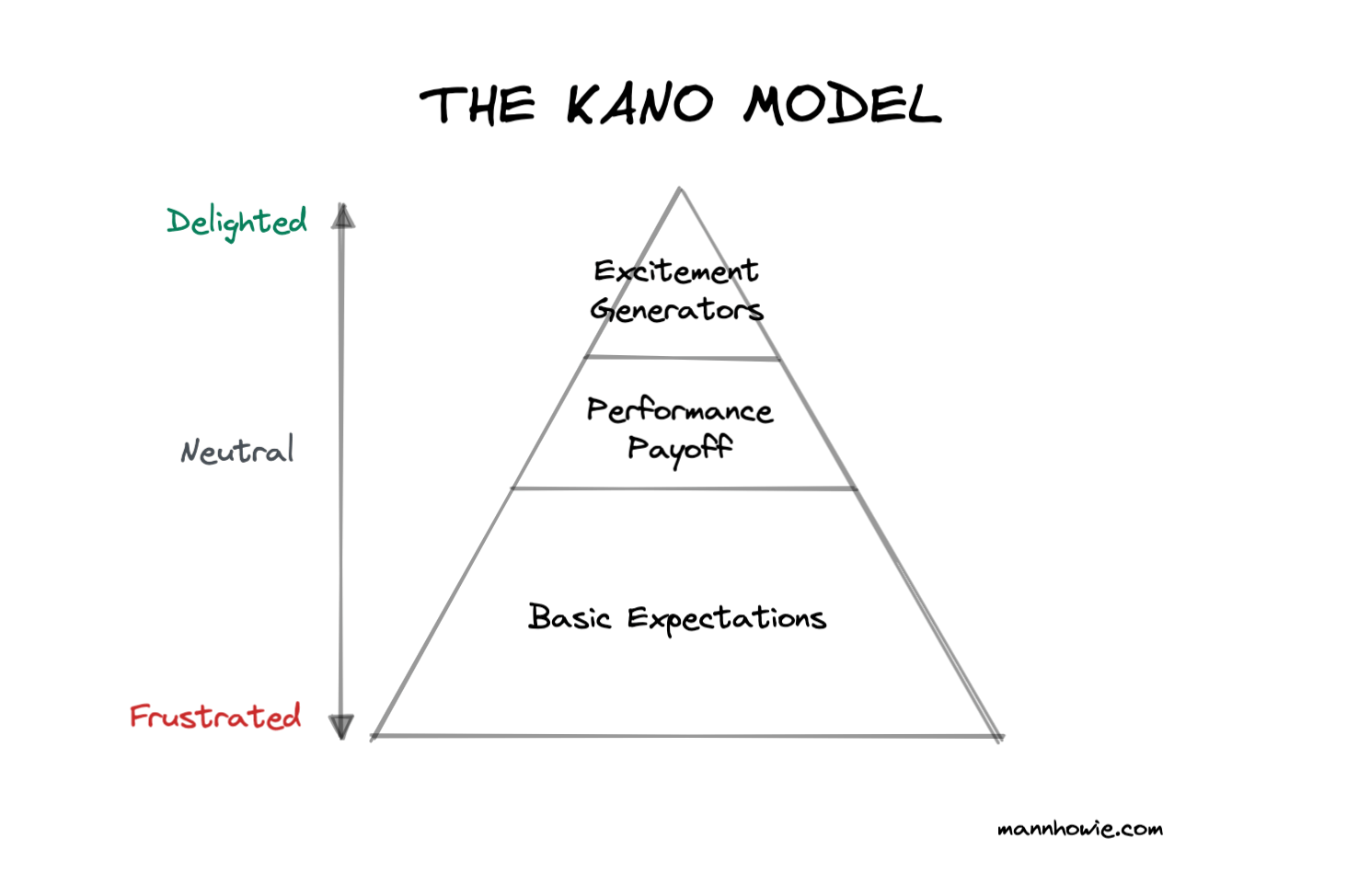Kano Model Basics - 3 Things you Need to Know
5 minute read | Jan 13, 2023
product
The Kano Model explains the tradeoff between product investment and customer satisfaction across three types of features:

Framing features using the Kano Model’s three categories can help product teams prioritise and communicate the value of their investments.
1. Basic Expectations
Basic expectations are offerings that users expect you to meet. They are not a source of satisfaction but can cause frustration if not met. You can only screw up basic expectations. Examples include instant hot water in hotels, rechargeable EV batteries, reliable e-commerce delivery and file saving in documents.
Investment in these features are expensive and at best achieve a neutral customer satisfaction. Users don’t tell others about them if they are met but will complain to others if not met. Over-investment can cause diminishing returns. Good enough is usually enough.
Too many unmet basic expectations create openings for competitors. Smart startups will focus on nailing less features. This lowers the investment hurdle to achieve basic expectations and creates opportunity to invest in Performance Payoff and Excitement Generators.
2. Performance Payoff
Performance payoff features are not absolutely necessary but increase the enjoyment of the offering and can make it easier to achieve tasks. These features have a linear relationship between investment and customer satisfaction. Examples include room service in hotels, long-range EV batteries, next-day delivery and advanced formulas in spreadsheets and tables.
Over-investment in performance payoff increases the risk of feature rot, product complexity and creating new unmet basic expectations.
3. Excitement Generators
Excitement generator are sources of unexpected delight and “wow factors”. They are not expected and do not cause frustration when not present. Examples include complementary whiskey samples in hotels, remote EV climate control, bonus subscriptions for Prime and sheets.new (try it).
Word of mouth travels with excitement generators.
Excitement generators fail if basic expectations are unmet and performance payoffs are subpar. They are a luxury investment and typically only a few will become “showstopper” features.
Over time excitement generators will become basic expectations which further raises the investment hurdle for competitors.
Summary
The Kano Model's three major product feature categories with examples:
| Customer Satisfaction | Basic Expectations | Performance Payoff | Excitement Generators |
|---|---|---|---|
| Expected by users? | Yes | No | No |
| Frustrated if missing? | Yes | No | No |
| Delighted if met? | No | Yes | Yes |
| Word of mouth if met? | No | Yes | Yes |
| Investment vs Payoff | Diminishing | Linear | Exponential |
| Examples | |||
| Hotel | Instant hot water | Room service | Whiskey samples |
| Tesla | Rechargeable battery | Fast charging | Remote climate control |
| Amazon Prime | Reliable delivery | Next day delivery | Prime Video, Audible, Twitch |
| Google Sheets | File saving | Formulas | sheets.new |
References
Want more tips?
Get future posts with actionable tips in under 5 minutes and a bonus cheat sheet on '10 Biases Everyone Should Know'.
Your email stays private. No ads ever. Unsubscribe anytime.